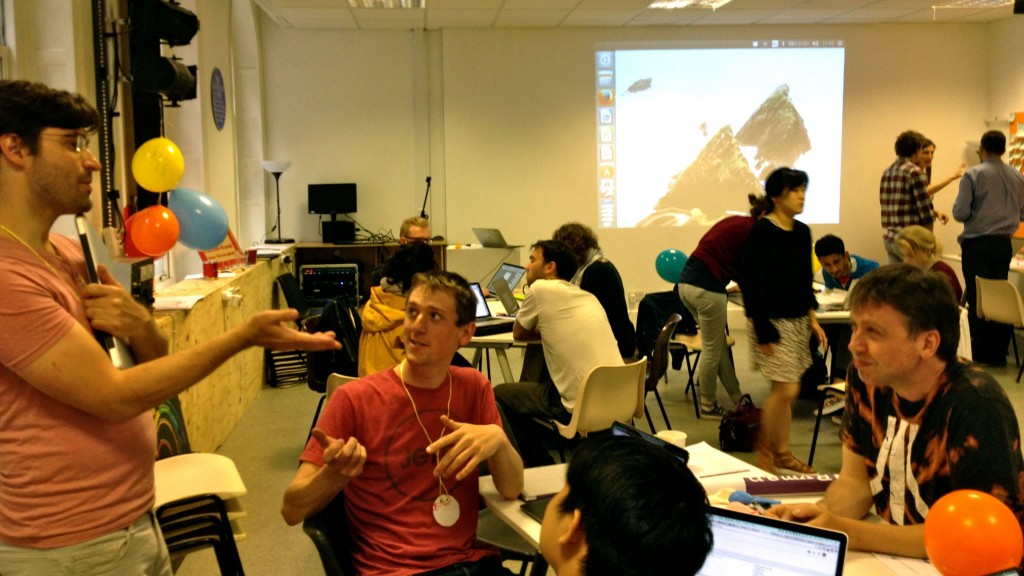Resources - Blog Past event
OSCEdays hit Fab Lab London

When Erica Purvis and Dr Sharon Prendeville told us about their involvement in planning a global design hackathon to kickstart creative circular economy solutions – and open source solutions at that – we were delighted to get involved and throw a challenge of our own into the mix.
Here Erica and Sharon reflect on the outcomes from the London event.
From June 12th-14th the Open Source Circular Economy Days took place at Fab Lab London. Participants from a variety of backgrounds were introduced to circular economy challenges identified by leaders such as RSA Great Recovery, Open Energy Monitor, The Rubbish Diet, and the Knowledge Transfer Network (also the London event sponsor), before setting about about working on solutions using open source principles.
Topics included a challenge set by RSA Great Recovery to explore and prototype ways to build circularity into maker spaces – such as Fab Labs and hackspaces (handy the event was held in one). This challenge links with a Future Makespaces project run by the Royal College of Art, so keep an eye out for more details on this challenge and project soon from one of the participants and researchers, Grit Hartung.
Another team opted to develop alternative bottle designs and closed loop recycling systems for high-end (and often unrecyclable) cosmetic industry products. The team went on to develop and prototype a simple reusable inner fixing using the 3D printer at their disposal. Note: it took 10 hours to print a small pot!
One team worked with Open Energy Monitor on its open source energy monitoring hardware, to build understanding of the embodied energy impact of a product. They were lucky enough to have one of the founders joining in the team, as well as drop-in support by an expert in LCA and an Open LCA user, who was able to provide great insight, direction and verify the quality of the open data set used. What is exciting about this is the potential for open guidance and transparent communication to enable others to use similar approaches to map other product designs and supply chains. You can read more about this challenge in Trystan’s write-up, as well as read more details on the embodied energy of a micro-controller. Open Energy Monitor has also been chosen as one of the projects for the upcoming POC 21 (Proof of Concept) innovation camp in Paris.
By the end of the Trust is not a Waste challenge the team had neatly summarised years of research, data, online educational resources and insight work from the likes of WRAP, Keep Britain Tidy and SITA UK, into a great wireframe, UX and UI Sketch for an app to build trust and clarity in the waste and recycling system.
The difficulties in designing wearable technology for a circular economy were also grappled with, with the participant that led this challenge becoming the resident expert. He explored current guidelines for sustainable or circular product designs and looked at ways to build these on for wearables. The team then envisaged future scenarios featuring repurposed smartwatches.
We had frustration, learning, hugs and beers and have ended no longer as organisers and participants but as collaborators, openly sharing our skills and passion for exploring, prototyping and creating action for an Open Source Circular Economy.
So, what is next? It is not set, but we know that it’s not just about the Days. It’s about catalyzing ideas, finding common ground, understanding and growing through open participation across sectors and disciplines. The OSCEdays is about putting ideas into action, learning, sharing and collaborating openly with like-minded people all over the world. We know we have a long way to go to fully identify and grow the opportunities and welcome and encourage others to explore with us.





